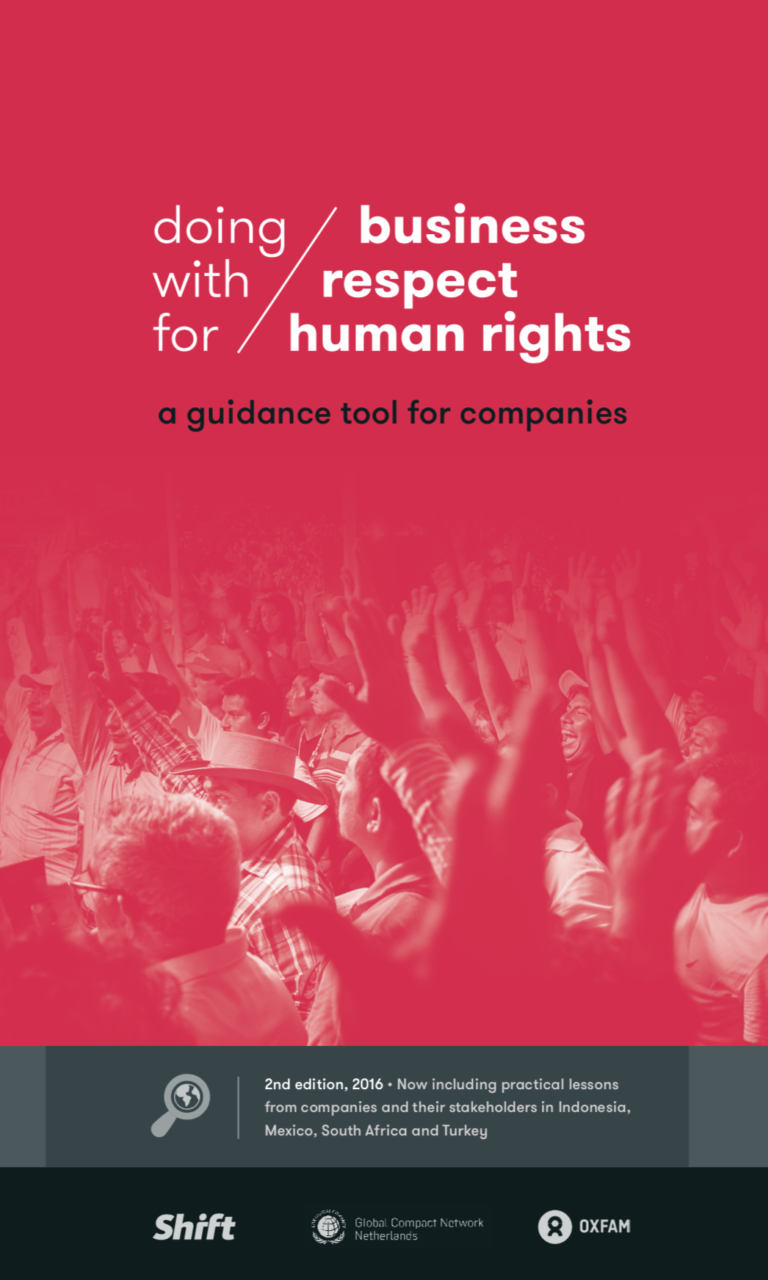This guidance is for company staff who want to understand what “doing business with respect for human rights” means. It is for anyone who faces – or could face – scenarios in which their function, department or company could be connected to harm to people, or what this guidance calls “negative impacts on human rights”. This includes staff well beyond the sustain- ability or corporate social responsibility (CSR) function; it could include staff in corporate functions like procurement, sales, legal, public affairs or risk, and in different areas of operations, including business units and country subsidiaries.
This guidance is intended to equip individuals with practical advice, experiences and insights to get started or build on existing efforts by their company to respect human rights throughout its operations. It can’t answer every question one might have, but it should set some parameters that can help guide them on what constitutes a credible approach to preventing and addressing human rights impacts.

